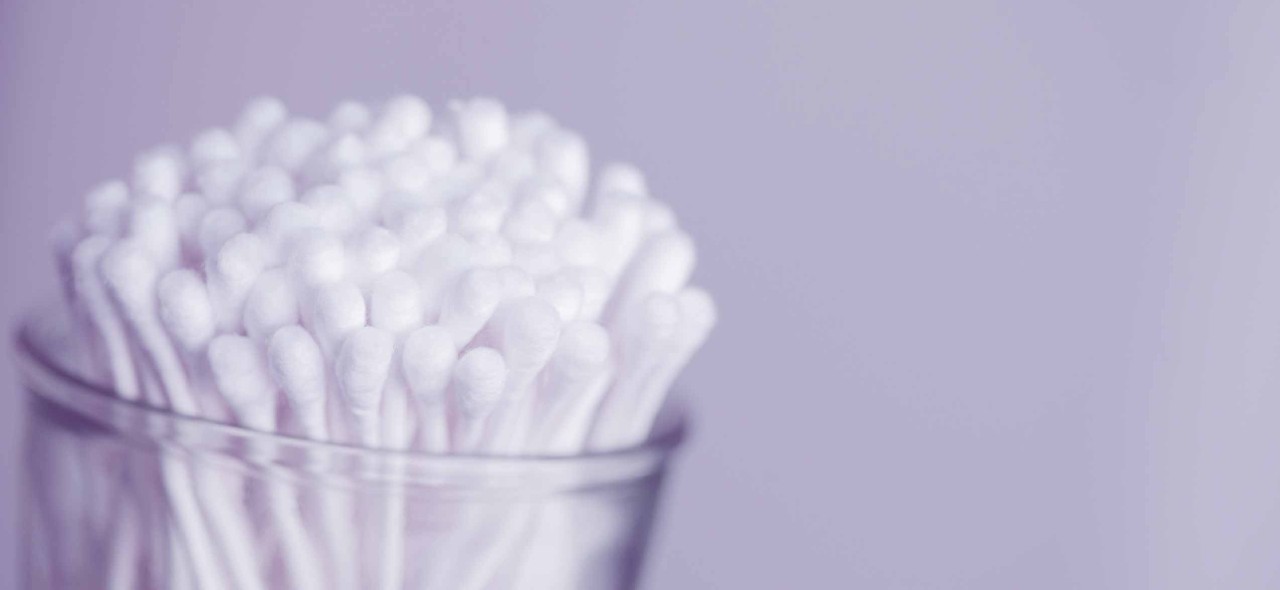
UC grad's company offers new COVID-19 test
MiCo BioMed is looking to market the DNA-testing device in the United States
A University of Cincinnati graduate helped develop a quick DNA test for COVID-19, or coronavirus.
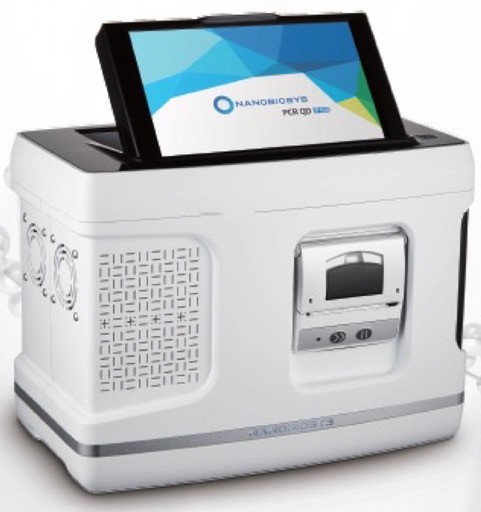
South Korea medical manufacturer MiCo BioMed is seeking FDA approval for a toaster-sized device that tests for COVID-19. Photo/Provided
Medical manufacturing company MiCo BioMed, which has an office in Cincinnati, licensed intellectual property related to UC’s lab-on-a-chip technology. The company, based in South Korea, has developed a DNA/RNA detection device the size of a toaster that can provide rapid and reliable results in an hour, said Jay Han, a UC graduate who supervises the company’s U.S. operations.
The device has regulatory approvals for use in Europe. Now his company is seeking a healthcare partner to get U.S. Food and Drug Administration approvals in the United States.
“Hopefully we can find a partner to get quick approval from the FDA for coronavirus detection,” Han said.
The project demonstrates the positive impact UC graduates are having around the world as described in UC's strategic direction called Next Lives Here.
Lab-on-a-chip technology
“The portable device can test bodily fluids to quickly identify COVID-19 using a DNA amplifier. COVID-19 can be confirmed within an hour, which is faster than traditional tests that can take three hours using bulky instruments in the lab,” Han said.
Each test cartridge can test up to six samples, so each device can test as many as 140 samples per day.
“Our technology is based on microfluidic lab-on-a-chip technology. That is key, I think.” Han said.
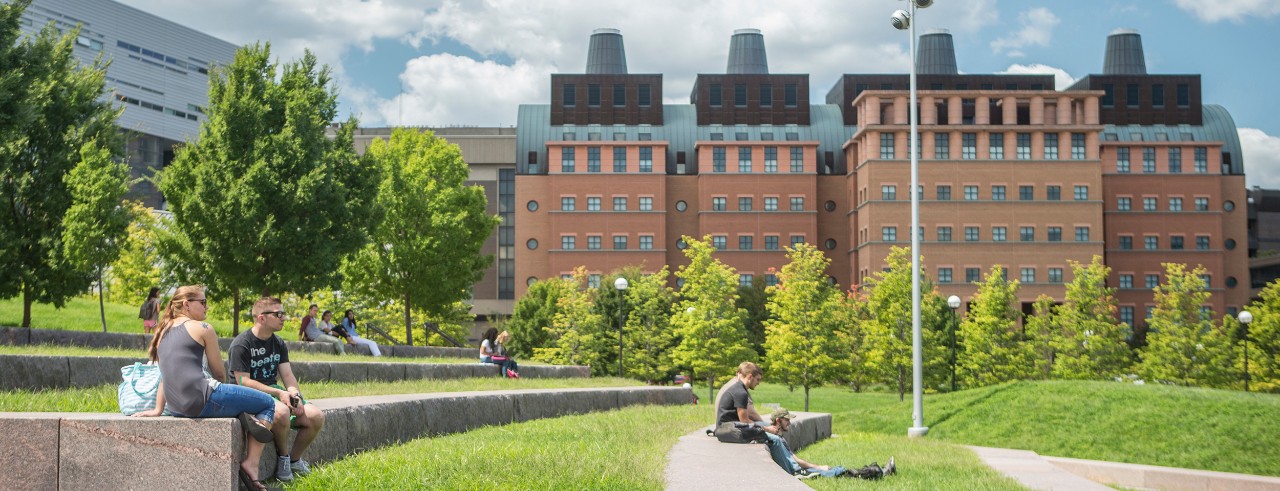
The University of Cincinnati's Engineering Research Center. Photo/Andrew Higley/UC Creative + Brand
In microfluidic lab-on-a-chip, small DNA samples from a patient are amplified to create enough DNA to generate a detailed study. The new device allows for a shorter test time, Han said.
Han earned a doctoral degree in electrical engineering from UC’s College of Engineering and Applied Science in 2005 after completing an undergraduate degree at Korea University. He studied under UC electrical engineering professor Chong Ahn, whose startup company Siloam Biosciences was purchased by the publicly traded MiCo BioMed in 2019. Han was one of the founding employees of Siloam in Cincinnati.
In his lab at UC, Ahn is developing simple and portable testing devices for infectious diseases such as malaria. For one experiment published this year in the journal Microsystems & Nanoengineering, he developed a portable lab that plugs into your smartphone, transmitting test results to your doctor. A patient simply puts a single-use plastic lab chip into his or her mouth for sampling saliva then plugs that into a slot in a credit-card-sized analyzer which plugs likewise into a smartphone.
A digital app UC developed can transmit the test results to a doctor or the patient.
I was in electrical engineering, but at the same time I learned biology and chemistry. It’s a very good interdisciplinary program.
Jay Han, UC electrical engineering graduate
Smartphone labs coming
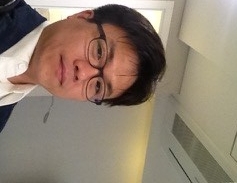
UC graduate Jay Han works for the South Korean company MiCo BioMed, which has developed a new test for COVID-19. Photo/Provided
Ahn said a smartphone application for coronavirus isn’t yet available. But his lab is developing a DNA lab-on-a-chip for a smartphone that can test coronavirus as well as other infectious diseases.
The market for MiCo BioMed’s coronavirus device includes doctor’s offices, hospitals and health departments. But Han said he thinks its ability to conduct tests remotely makes it especially useful for rural or isolated parts of the United States or home care services
“There are people who have trouble getting access to labs or hospitals. It takes a lot of time to travel,” Han said. “In that case, our system can assist and help people living in those areas.”
Coronavirus testing in the United States has been a hot topic this month. As of this week, South Korea has tested about 300,000 people, identifying the virus in 8,000 patients. This has dwarfed the number of tests conducted so far in the United States at just 60,000.
“They prepared earlier,” Han explained. “They made a testing kit in two days when coronavirus began to spread. And they began testing every person who arrived at ports in the country.”
UC’s Ahn said South Korea had more experience dealing with previous deadly epidemics such as SARS. The country's transparency of data, massive early tests and social cooperation in dealing with the outbreak also helped, he said.
“People are willing to keep their social distance and undergo rapid and massive testing to keep the outbreak controlled,” Ahn said.
Han said his experience in UC’s Department of Electrical Engineering and Computer Science prepared him for the challenges of running a biosciences company.
“UC provides a lot of opportunities to learn new things. The PhD program was well-developed. The coursework was thorough for the advanced research. I worked in the lab and ERC clean room four days a week, so I had opportunities to learn about everything in the lab,” Han said.
“I was in electrical engineering, but at the same time I learned biology and chemistry in departments of biomedical engineering and chemistry,” he said. “It’s a very good interdisciplinary program."
Featured image at top: Cotton swabs. Photo/Sharon McCutcheon/Unsplash
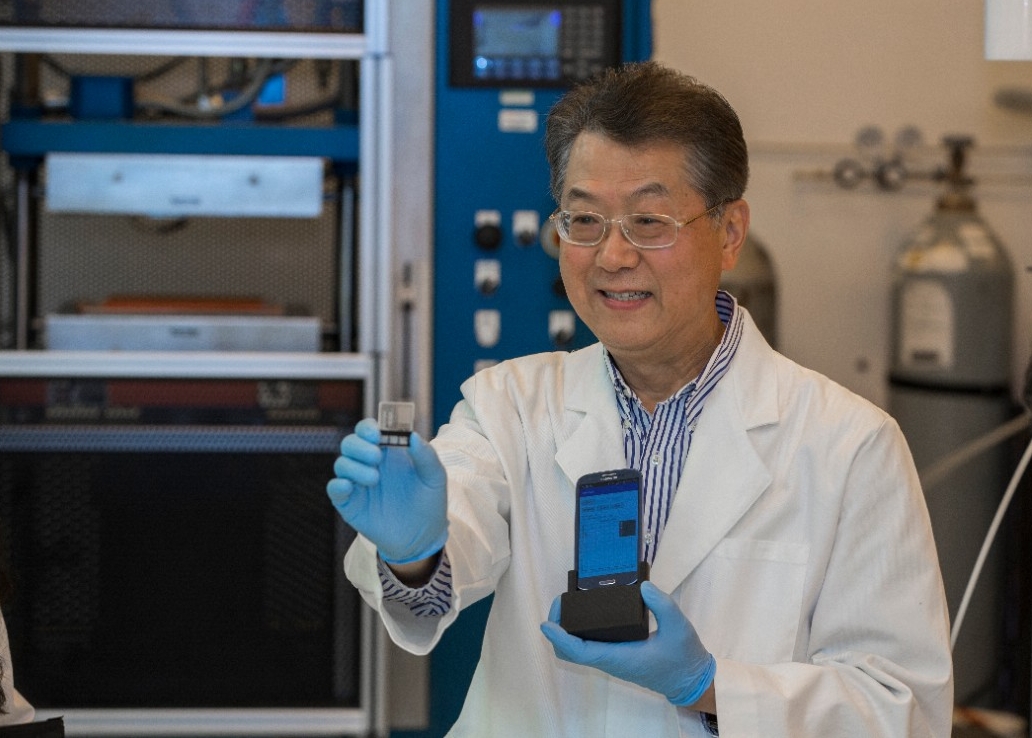
UC engineering professor Chong Ahn is developing point-of-care-testing devices in his laboratory. His lab-on-a-chip plugs into a smartphone to transmit results directly to a doctor. Photo/Joseph Fuqua II/UC Creative + Brand
Impact Lives Here
The University of Cincinnati is leading public urban universities into a new era of innovation and impact. Our faculty, staff and students are saving lives, changing outcomes and bending the future in our city's direction. Next Lives Here.
Stay up on all UC's COVID-19 stories, read more #UCtheGood content, or take a UC virtual visit and begin picturing yourself at an institution that inspires incredible stories.
Become a Bearcat
- Apply online or get more information about undergraduate enrollment by calling 513-556-1100.
- Learn more about UC's many undergraduate and graduate programs.
Related Stories
Cincinnati a top destination for street art, museums
February 27, 2026
Discover why Cincinnati is a top destination for street art and museums, ranked among USA Today’s 10Best for 2026. Explore how University of Cincinnati research shows public art boosts community vitality, and find the best things to do near UC’s campus for students and visitors alike.
Intrapreneurship: Strategies to promote internal innovation
February 27, 2026
Intrapreneurship encourages employees at large companies to innovate and test ideas with an entrepreneur’s level of freedom. Learn how to become an intrapreneur in your organization.
'Paradigm-shifting' study confirms effectiveness of long-acting HIV treatment
February 26, 2026
The results of a clinical trial involving the University of Cincinnati, recently published in The New England Journal of Medicine, show people failing HIV treatments with oral medications were able to be treated successfully using injections.
